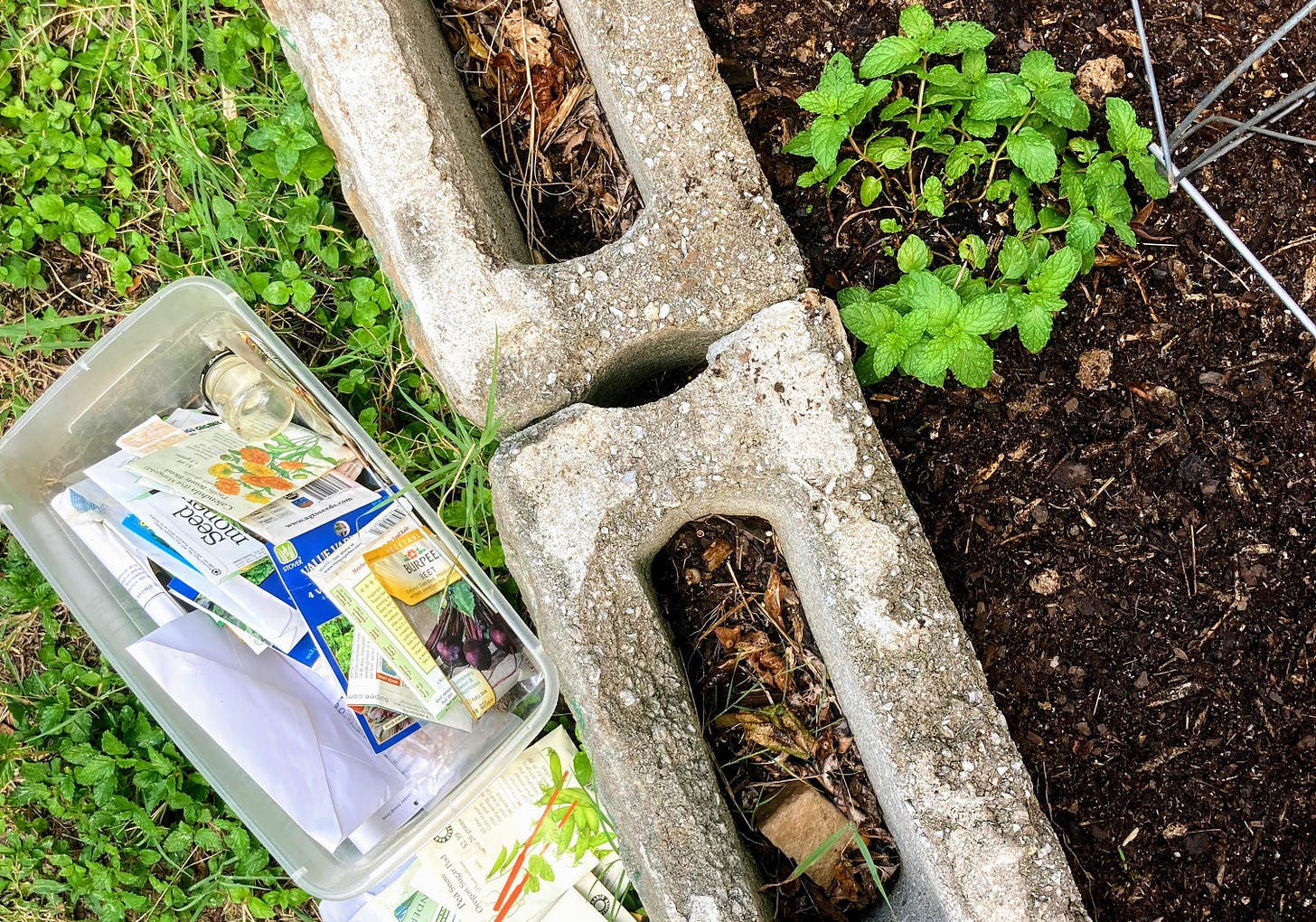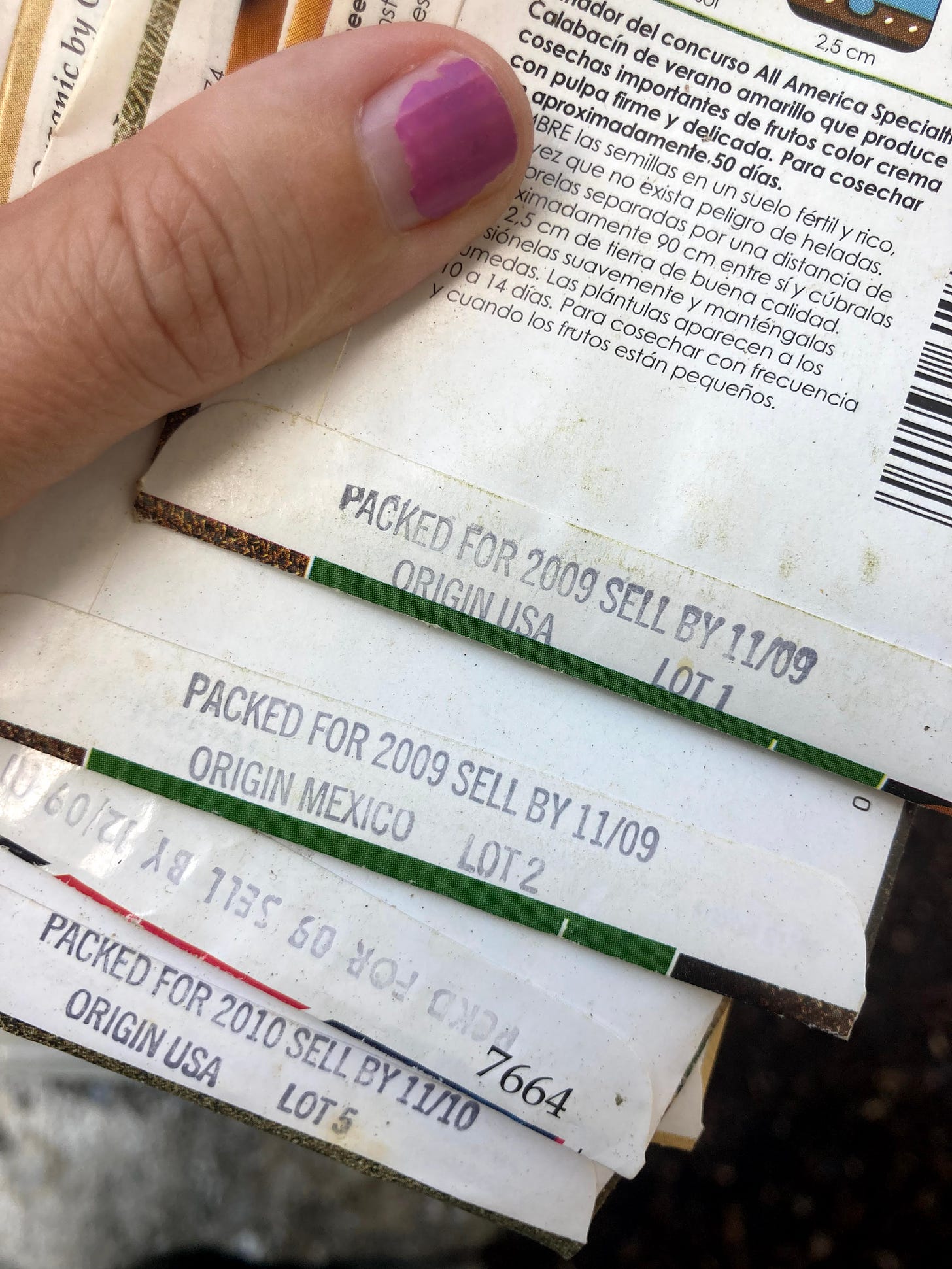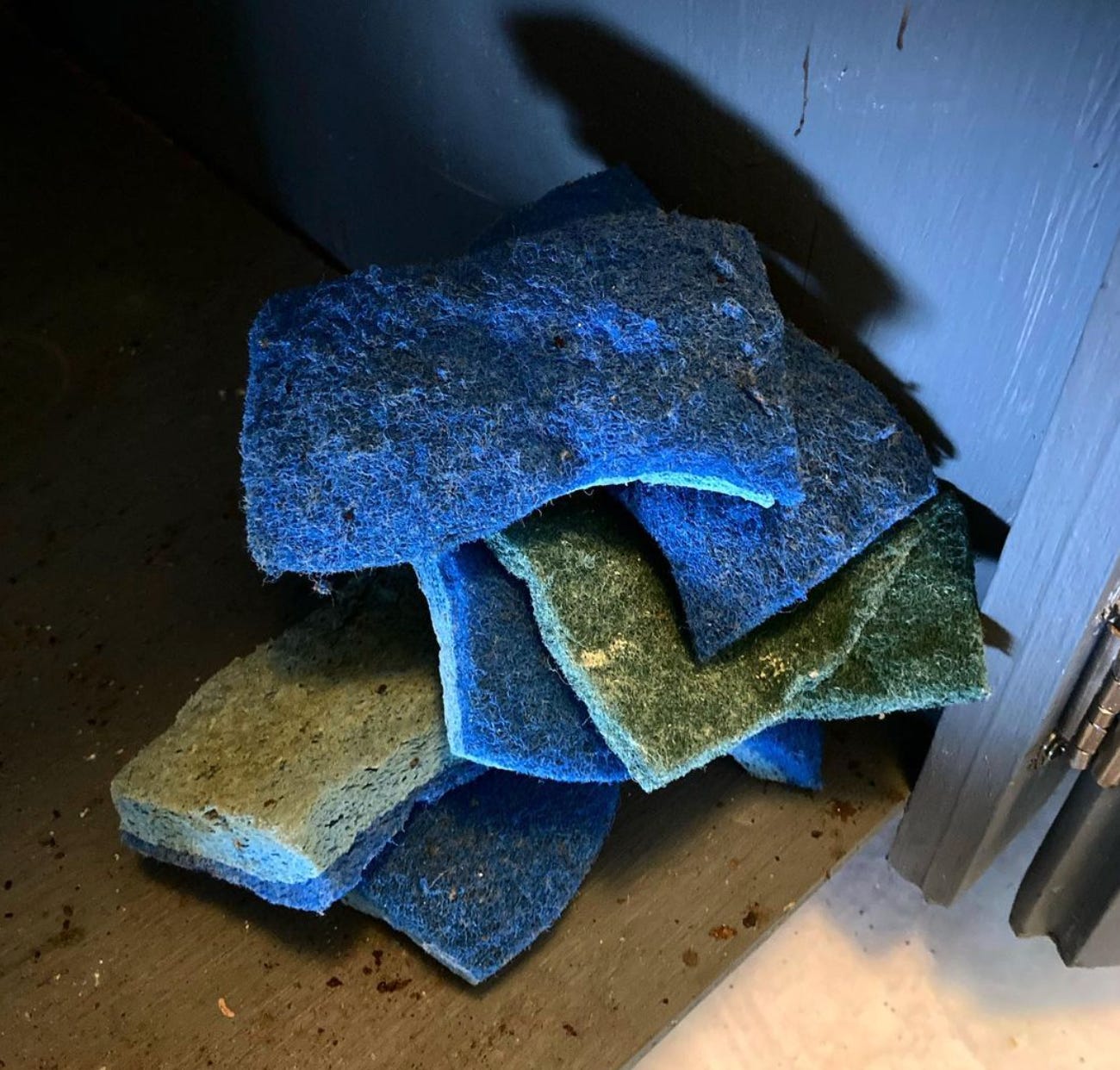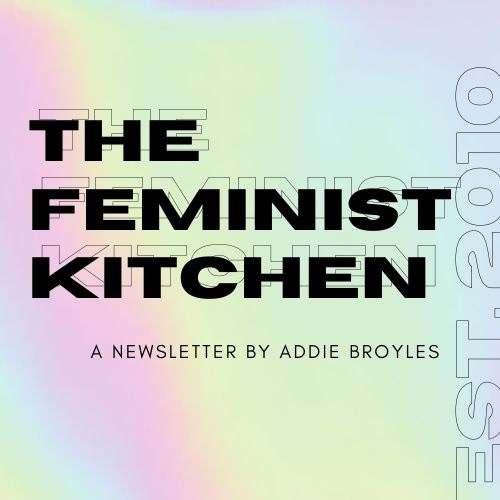It's still a little strange to this Midwesterner to be planting a garden in fall, but it has become a ritual that I look forward to. Pulling out the dead summer plants, while trying to keep the basil and mint alive as long as possible.
And when the weather changes in just that way that tells me it’s time to garden (late February and mid September, usually) I pull out this plastic box that is my unofficial seed bank.
This clear Tupperware container that lives in my shed is filled with packets of lettuce, kale, peas, beans, herbs, flowers, squash, carrots, beets and every other seed you can imagine that didn't get fully used in my garden over the years.
The oldest packages date back to 2009.
Those seeds probably aren’t viable any more, but then again, maybe they are. The memories of that year might be stronger than these seeds, but the frugal and optimistic me is convinced that, if I just sprinkle a few more of them than usual in the soil, at least a few of them will sprout.
I learned long ago that I'm not planting a home garden to save money, not with all the costs for soil, water and my time. Even though seeds aren’t that expensive, I keep any leftover seeds from year to year for the same reason I reuse plastic zip-top bags and double steep my tea bags.
I do it because I hate to throw away anything that still might have some use.
Julian called me out on this waste-not-want-not philosophy during our hurried morning today.
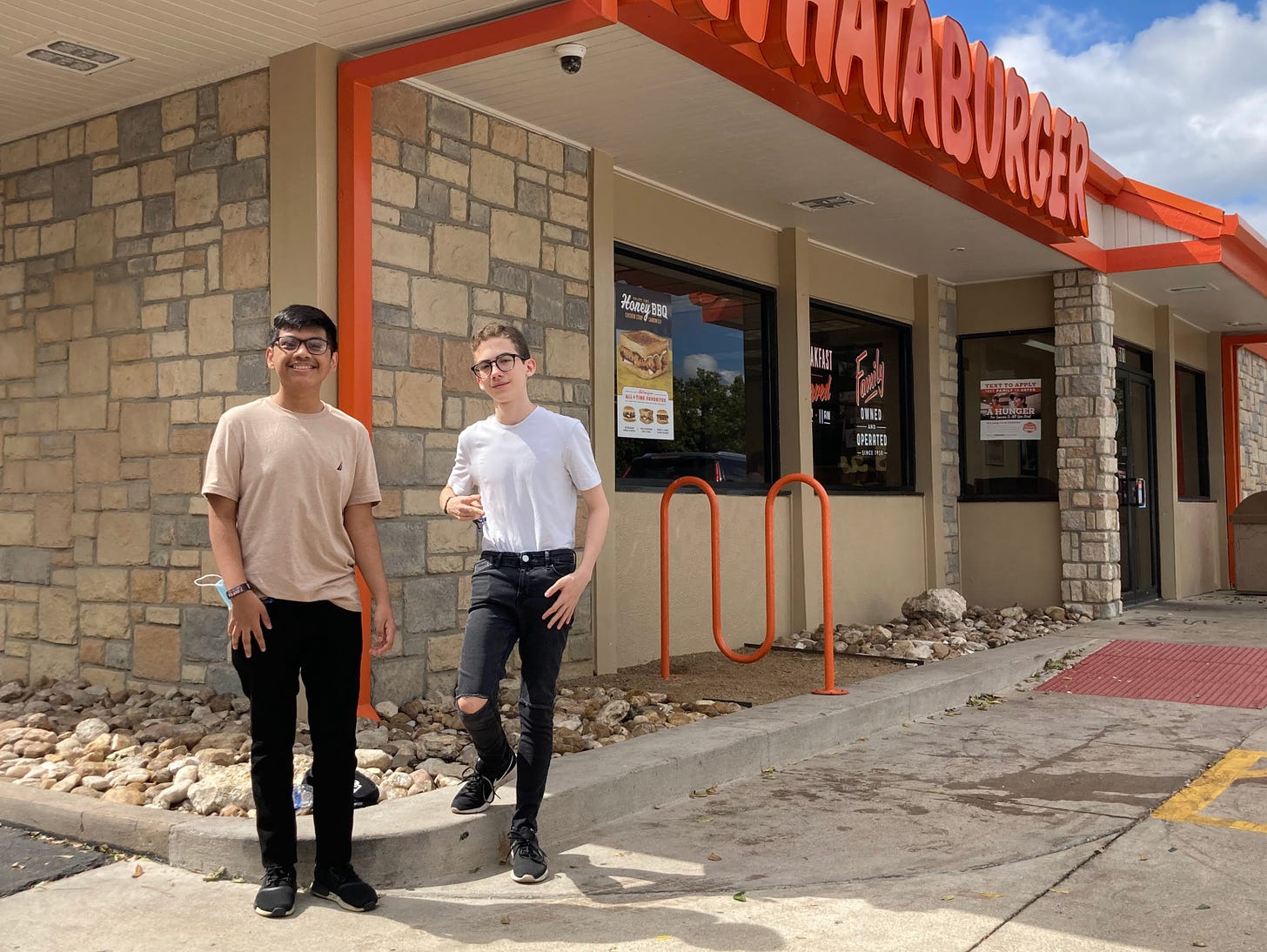
He’s not in the habit (yet?) of using every bit of shampoo/conditioner/body wash/toothpaste, and the almost-used-up bottles are starting to stack up in the bathroom now that he’s leaving the house every day. (Thank goodness. He’s doing great in high school, which only reinforces how not-great he and his brother were doing during Zoom school. The showers were few and far between that year.)
He was annoyed that I was imposing my shake-every-bit-of-lotion-out-of-the-bottle habits on him, and I didn’t realize how annoyed I would be that I needed to explain why “we do this” in the first place.
I gave him my spiel about his great-grandmothers being raised during the Depression, so of course we have these kinds of behaviors embedded in our DNA.
“But maybe not you,” I quickly added, trying to be a good ancestral practitioner. I want him to know where he come from, but I also want to make sure he knows he has a say in this matter.
A few weeks ago, I posted on Instagram my stash of used blue kitchen sponges. I always throw the used sponges under the sink so I can use them to scrub surfaces that are farther down the cleaning chain (toilets, bathtubs, anything outdoors).
Apparently I’m not the only sponge- and seed-saver out there.
Steve left this comment:
When we moved my mother, we found a container of ¾-inch plastic balls. “What are these?” She told us that they were from her roll-on deodorant. This was one of many perplexing facts that surfaced during this process. Several years later, I saw her taking a pair of scissors to a roll on a deodorant container. I watched as she set the ball aside so that she could get her finger down into the container to retrieve the last bits of deodorant from the very bottom. Those balls were simply a byproduct of thrift.”
From Pam:
“Recycled” wasn’t in our realm growing up, but (my mother) did just about everything I’ve read on your post with the addition of using old sheets and towels for cleaning rags or sheets for covering plants for Texas’s occasional freezes. Of course, I do the same! I don’t think I’ve bought rags, twistys or rubber bands in years. I do not reuse aluminum foil or baggies, though. I’ve got to draw the line somewhere.
When I take time to slow down and think about these habits with a long lens and an open heart, I can see these activities as a way for me not to save money or the environment or teach my kids how to be practical adults.
I can save these seeds, sponges and scraps with the intention to connect with my ancestors.
Some of them planted gardens every season and never threw away an ounce of fabric or food. Others relied on the grocery store, but kept every rubber band and twist tie and old magazine.
Will these seeds sprout? Will I ever actually use these sponges? Will using every last bit of shampoo save me any money (or reduce any plastic from landfills) over the course of my life?
Possibly.
Will they give me a sense of rootedness in myself and my home?
Absolutely.
I’m writing this week’s newsletter from Radio Coffee and Beer on Menchaca Road, a place that’s so popular nobody goes there any more.
I jest. (Kind of.)
I do love this place because it’s a watering hole where new and familiar faces come together for coffee, community and Veracruz.
I was here to meet a food content creator who just moved to Austin a few months ago, but the real highlight was running into two work acquaintances who are fellow moms and meaning makers. They’ve both taken big professional leaps that have or are paying off in big ways, and it reminded me of how much I miss the random conversations that take place in a traditional workplace.
All three of us work from home, and we all marveled at how nice it was to see each other in real life and share the not-so-insignificant chatter that adds a certain shimmer to one’s day.
Working from home is a blessing in so many ways, but sometimes I forget how rewarding these synchronous interactions can be. (Thanks, Rachel and Stefanie, for making my morning. We’ll get that craft circle going this winter!)
Keep your eyes peeled for another newsletter from me this week about “Dining with the Dead,” that new cookbook from my friends Mariana and Ian McEnroe!
See you soon!
Addie



